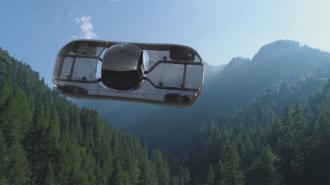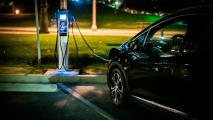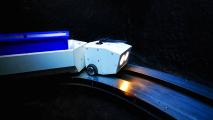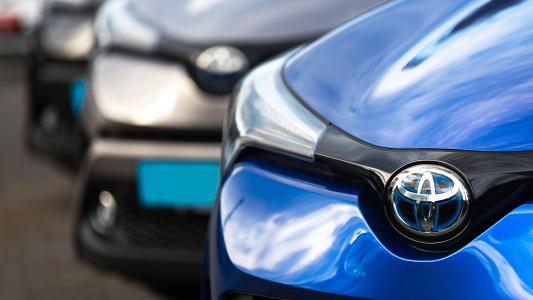The US just certified its first fully electric flying car
For the first time, a fully electric flying car has secured a certificate of “airworthiness” from the FAA — putting its maker one step closer to its goal of selling the $300,000 flying car in the US.
The challenge: In 2022, the average driver in the US spent 51 hours stuck in traffic, costing them nearly $550 in fuel and $870 in lost time. In busy cities like New York and Chicago, they spent well over 100 hours in traffic.
The problem is expected to get worse in the future, too, as the population grows and more people move into and around urban areas — and until we completely phase out fossil fuel-powered cars, more driving is going to mean more harmful greenhouse gas emissions.
“This certification now gives us the ability to fly in locations we need and for purposes we need.”
Alef Aeronautics
The idea: To combat our climate woes and help commuters avoid congestion, dozens of companies are developing small electric aircraft to fly them above crowded streets.
Most are eVTOLs, which take-off and land vertically, like helicopters. Those are typically limited to flying, though — you couldn’t also drive one on the road, which means they can only travel to and from places with suitable landing pads.
A smaller group are developing true flying cars — vehicles that can be flown or driven on public roads — but the only ones that have gotten the FAA greenlight for test flights are gas/electric hybrids, and one of them still requires a runway to take off, which means it wouldn’t be much use for navigating around a city.
What’s new? California-based Alef Aeronautics has now secured a special airworthiness certification from the FAA, in the experimental category, for its Armada Model Zero, a fully electric flying car that takes off and lands vertically.
This certification doesn’t give Alef permission to fly the Armada wherever and whenever it wants, but it does give the company more flexibility for flights.
“Our flights were very limited without this certification,” an Alef spokesperson told FLYING. “This certification now gives us the ability to fly in locations we need (for example, near our headquarters in Silicon Valley) and [for] purposes we need (like exhibition, for example).”
“It allows us to move closer to bringing people an environmentally friendly and faster commute.”
Jim Dukhovny
Looking ahead: Alef plans to use these Armada flights to inform the design of its first production vehicle, the Model A. That electric flying car is expected to carry 1 to 2 passengers, have a top road speed of 25 mph, and have a range of 200 miles on the ground or 110 miles in the air.
Alef is already taking pre-orders for the $300,000 Model A on its website, with plans to begin deliveries in 2025 — pending approval, of course.
“We’re excited to receive this certification from the FAA,” said CEO Jim Dukhovny. “It allows us to move closer to bringing people an environmentally friendly and faster commute, saving individuals and companies hours each week.”
We’d love to hear from you! If you have a comment about this article or if you have a tip for a future Freethink story, please email us at [email protected].






